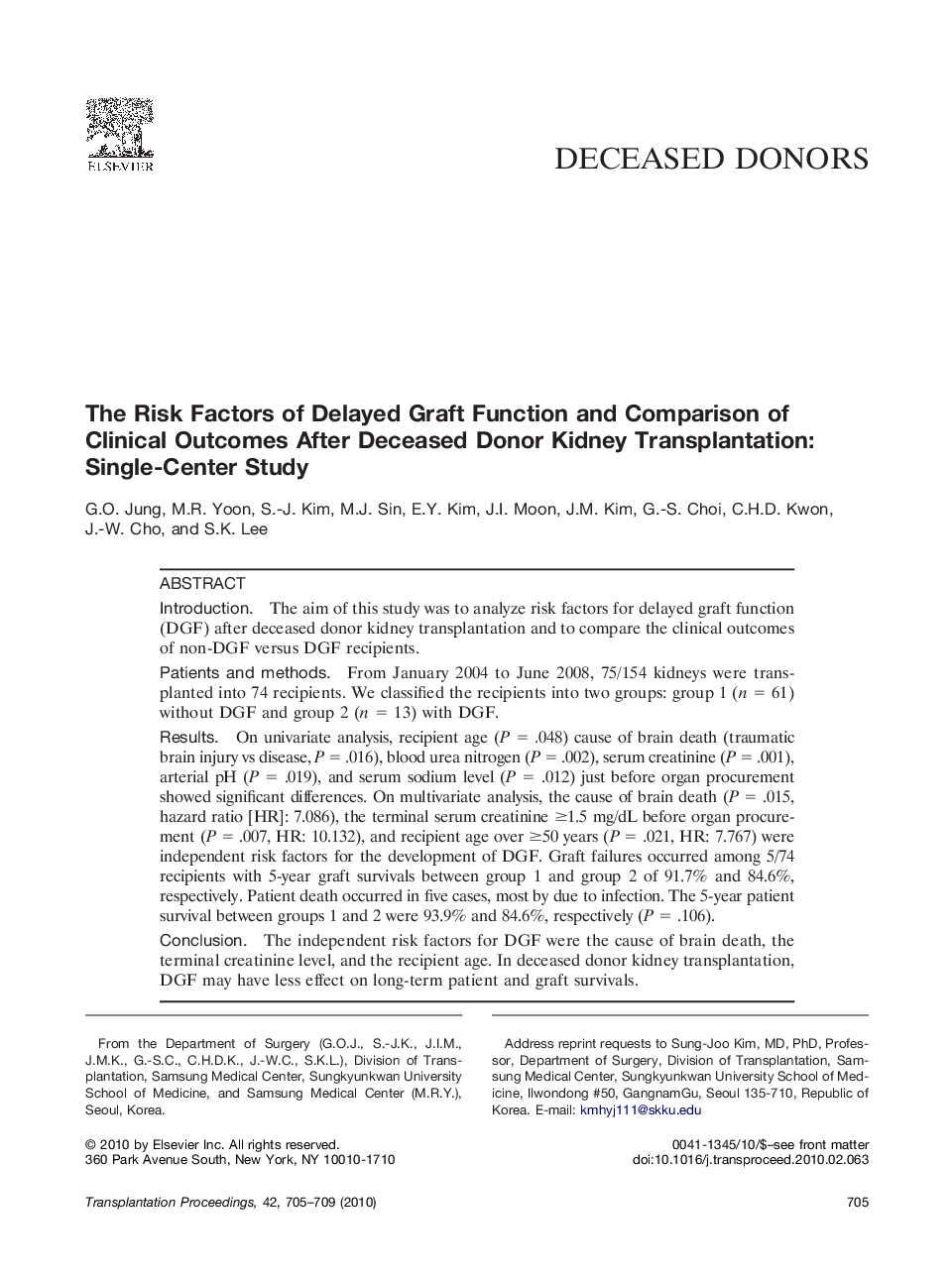| Article ID | Journal | Published Year | Pages | File Type |
|---|---|---|---|---|
| 4258111 | Transplantation Proceedings | 2010 | 5 Pages |
IntroductionThe aim of this study was to analyze risk factors for delayed graft function (DGF) after deceased donor kidney transplantation and to compare the clinical outcomes of non-DGF versus DGF recipients.Patients and methodsFrom January 2004 to June 2008, 75/154 kidneys were transplanted into 74 recipients. We classified the recipients into two groups: group 1 (n = 61) without DGF and group 2 (n = 13) with DGF.ResultsOn univariate analysis, recipient age (P = .048) cause of brain death (traumatic brain injury vs disease, P = .016), blood urea nitrogen (P = .002), serum creatinine (P = .001), arterial pH (P = .019), and serum sodium level (P = .012) just before organ procurement showed significant differences. On multivariate analysis, the cause of brain death (P = .015, hazard ratio [HR]: 7.086), the terminal serum creatinine ≥1.5 mg/dL before organ procurement (P = .007, HR: 10.132), and recipient age over ≥50 years (P = .021, HR: 7.767) were independent risk factors for the development of DGF. Graft failures occurred among 5/74 recipients with 5-year graft survivals between group 1 and group 2 of 91.7% and 84.6%, respectively. Patient death occurred in five cases, most by due to infection. The 5-year patient survival between groups 1 and 2 were 93.9% and 84.6%, respectively (P = .106).ConclusionThe independent risk factors for DGF were the cause of brain death, the terminal creatinine level, and the recipient age. In deceased donor kidney transplantation, DGF may have less effect on long-term patient and graft survivals.
